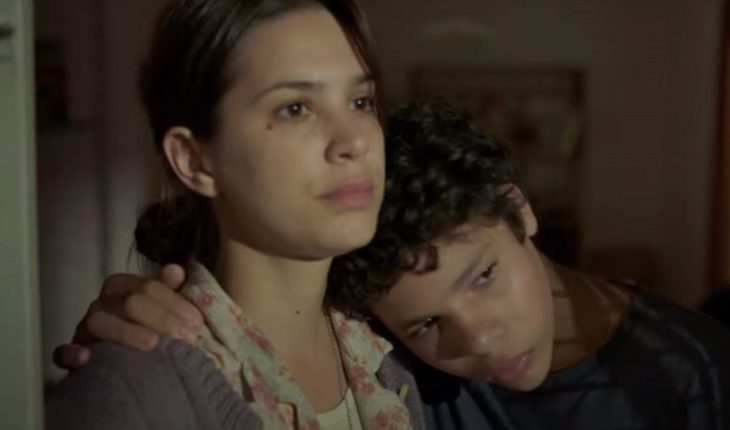ACLARATION: This review may contain spoilers. While the criminal plot has been surpassing the young Tévez’s own personal story (Balthazar Murillo), these two new episodes – “The Value of Identity” and “Two Mothers, an Act of Love” – run a little, and move us from the overflowing violence of the neighborhood to the protagonists’ most intimate relationship with his biological mother, until now a rather secondary character and without much weight in the day-to-day life of Carlitos.From that first episode, set in 1984, where Fabiana (Sofia Gala Castiglione) decides to put her baby to the cared for by her sister Adriana (Vanesa González) and her husband Segundo (Alberto Ajaka), we rarely saw interaction between mother and son, making it clear that, despite knowing their blood sources, Carlos continues to regard the Tévez as his true family. This does not change at any time, and Fabiana also does not try to improve the relationship, but in order to sign up for the AFA and dream of a professional football career, the boy needs the signature of his parents, a matter that removes the past and this family conflict . His chances to stay in Boca Juniors are getting bigger, and as he excels on the court, he acquires discipline and new teammates with which he begins to befriend, discovering a better life beyond the walls of Fort Apache. Despite these new relationships, Carlitos does not forget his best friend Danilo, who has his place almost secured in Velez, but the bad influences of his brother and the band he frequents, will soon begin to impact his life and his future.
Some who leave, for better or worse
As we see a Carlitos who is maturing and taking the reins of a possible professional sporting career, everything around him seems to back off: his father no longer has a stable job and is seduced by the non-holy proposals of his brothers; your biological mom doesn’t seem to want to help you in this new stage because you know you’d be ceding much more rights over your child; and the neighborhood begins to experience gang warfare when the society between Jorge and the Cochi takes more revanchist and violent paths. At this point, Fuete Apache is a barrel of gunpowder that is about to burst, and in the middle we have Carlos and Danilo, two boys with dreams and desire to succeed. But even, in this social landscape posed by Adrián Caetano within the vicinity of the neighborhood, the possibilities of both seem to be very different, and that is where the family plays a fundamental role. This difference becomes increasingly noticeable and, for the first time (and although we know the future of Tévez), we see a glimmer of hope for him and his people, as we begin to intuit a sad end for his Uruguayan friend.” Apache, the Life of Carlos Tévez” is not improving in terms of narrative and characters, but at least gives a little respite to the excessive violence and cultural stereotypes that accumulate. These two episodes focus much more around the protagonist, his first steps in Boca, his relationship with Fabiana and the past of his real dad, whom he never met. Thus we discover that there is quite a lot of guilt and pride in that family abandonment, but also affection, when he discovers that the baby can have a better pass.
Chronicle of an announced war
Caetano adds a little tenderness (in its own way, of course), but can’t avoid excesses, predictable endings and many common places. Their bad guys are untied and fill all the boxes (sex, drugs, etc.), paving the way for that war that is announced to the four winds. At least, on this occasion, he adds a little more touch of football for those spectators who are in need, and a sort of Mr. Miyagi in the figure of Roberto Carnaghi as Gandi, a “utility” that will help Carlos overcome his first major injury. Coming near the end of this first season, “Apache” proves that it doesn’t have much else to offer besides this: a story that gloats in misery and marginality, constantly seeking artifice and shock, and never true social analysis, forgetting his true protagonist, most of the time.
In this note:





